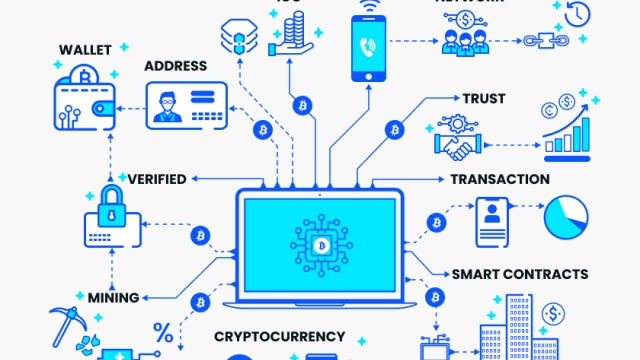
In recent years, blockchain technology has emerged as one of the most transformative innovations of our time. Originally developed as the backbone for cryptocurrencies like Bitcoin, its potential extends far beyond digital currencies. As we explore the myriad applications of blockchain, it becomes clear that this technology is set to redefine industries, enhance security, and foster greater transparency in our global systems.
The essence of blockchain lies in its decentralized nature, which allows for secure and immutable record-keeping without the need for a central authority. This shift presents an opportunity to revolutionize traditional processes that have long been marred by inefficiencies and distrust. From finance to supply chain management and beyond, the implications of blockchain technology are profound, promising to create a future where transactions are streamlined, trust is inherent, and data integrity is paramount.
Understanding Blockchain Technology
Blockchain technology is a decentralized digital ledger system that records transactions across multiple computers in a way that ensures the security, transparency, and immutability of the data. Each block in the chain contains a number of transactions, and once a block is filled, it is added to the chain in a linear, chronological order. This structure prevents any alteration of the information without consensus from the network, which makes blockchain an ideal solution for various sectors including finance, supply chain, and healthcare.
One of the key features of blockchain technology is its reliance on cryptography to secure data and control the creation of new blocks. This ensures that only authorized participants can access and modify the blockchain, thereby building trust among users. As each transaction is recorded on several nodes, the decentralized nature of blockchain mitigates the risks associated with traditional centralized databases, such as data breaches or single points of failure. This unique configuration fosters a higher degree of transparency and accountability.
The potential applications of blockchain technology extend far beyond cryptocurrency. Industries are exploring its use for smart contracts, where agreements can be executed automatically when certain conditions are met, and for tracking the provenance of goods to ensure authenticity. As organizations begin to recognize the benefits of adopting blockchain solutions, we are witnessing a gradual transformation in how businesses operate, paving the way to a more efficient and secure future.
Applications of Blockchain in Various Industries
Blockchain technology is rapidly transforming various sectors by providing enhanced security, transparency, and efficiency. In the financial industry, blockchain facilitates faster transactions and reduces the need for intermediaries, streamlining processes such as cross-border payments and smart contracts. Financial institutions are increasingly adopting blockchain to enhance their systems, leading to reduced operational costs and increased trust among clients.
In supply chain management, blockchain creates a tamper-proof record of product transactions, enabling companies to trace goods from their origin to the end consumer. This transparency helps combat fraud and counterfeiting while improving efficiency by providing real-time visibility into inventory and logistics. Companies are leveraging blockchain to enhance accountability and track product quality, significantly boosting consumer confidence in the products they purchase.
The healthcare sector is also benefiting from blockchain technology, as it allows for secure sharing of patient records among authorized healthcare providers. This improves the continuity of care and ensures that patient data is protected from unauthorized access. By using blockchain, healthcare organizations can streamline processes such as billing and insurance claims, ultimately reducing costs and enhancing patient outcomes while maintaining strict compliance with regulations.
The Future of Blockchain and Its Impact
The future of blockchain technology holds immense potential to reshape various sectors of our economy and society. As businesses and governments increasingly recognize the advantages of decentralization, transparency, and security that blockchain offers, we can expect a surge in its adoption across industries. This evolution will not only streamline operations but also drive innovation, creating new business models that were previously unimaginable. From supply chain management to financial services, blockchain applications are set to enhance efficiency and trust between parties.
Funded Account
Moreover, the integration of blockchain technology with other emerging technologies such as artificial intelligence and the Internet of Things will unlock new possibilities. By enabling secure and verifiable data exchanges, blockchain can enhance the capabilities of smart contracts and automated systems. This synergy may lead to the development of more sophisticated applications that empower individuals and businesses alike, ensuring that data integrity is maintained while promoting a more interconnected world.
As we look ahead, it is crucial to address the regulatory and technical challenges that accompany the growth of blockchain technology. Establishing clear regulations will foster a safe environment for innovation, while investment in education and infrastructure will ensure that societies are prepared to harness this disruptive technology. By overcoming these obstacles, blockchain can truly revolutionize not only how we conduct transactions but also how we interact with each other, ultimately forging a more equitable and transparent future.
